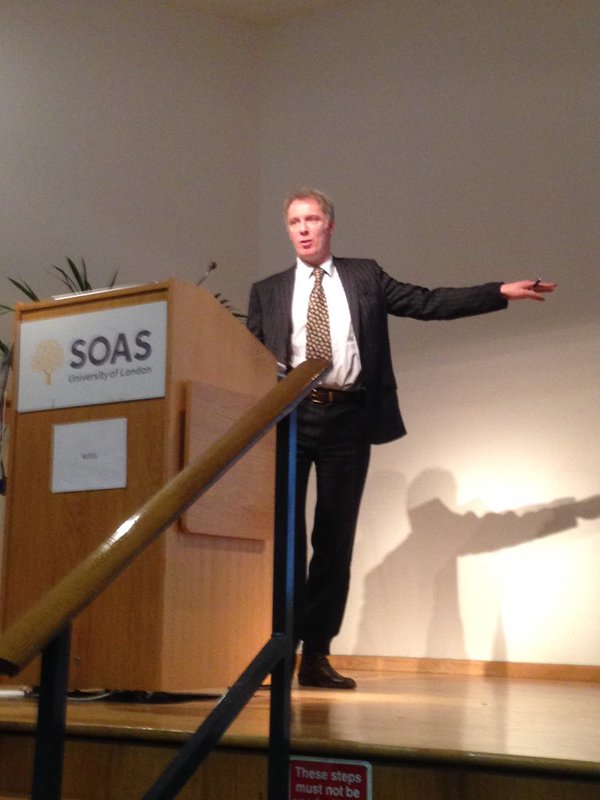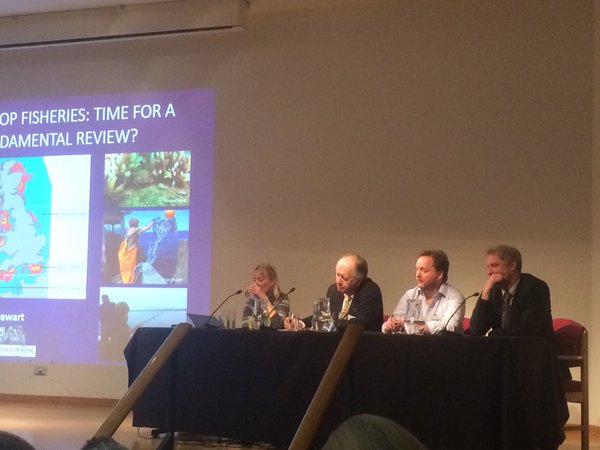
Congratulations to Dr Bob Earll for organising and hosting what was to my mind the most interesting and lively Coastal Futures conference yet. Held at SOAS in London the event draws professionals from industry, government, law and academia. It is truly interdisciplinary and the leading annual event in the UK to share developments in the rapidly changing world of marine management.
This year’s star turn was a very refreshing insight into Canadian regulation from Dr Jake Rice of the Canadian Department of Fisheries and Oceans. He talked on the need for coherence in decision making rather than conformity in the process. Dr Rice highlighted the requirement to understand the different silos in which knowledge is accrued rather than attempt to break them down (and thus lose the detailed knowledge those silos create). It put me in mind of Onora O’Neill’s excellent Reith Lecture on the difference between trust and transparency. The general picture reflected the ongoing tidal wave of marine regulation with the application of the Marine Strategy Framework Directive, the Maritime Spatial Planning Directive (Dr Peter Jones’ talk on this was particularly informative), developments in marine planning and marine protected areas.
However despite the developments on these ongoing regulations, fundamentally there is still a sense that the prime driver for marine planning has yet to be understood. Nothing exemplified this better than three disconcerting talks relating the fishing industry. Mike Park of the Scottish White Fish Producers’ Association assessed the unpredictable impacts as the requirement to land all fish impacts on his industry, Jerry Percy of Low Impact Fishers of Europe highlighted the rapid and potentially dangerous development of (formerly illegal) electric fishing by nearly 100 Dutch fishing vessels (some British flagged) in the North Sea, and Chris Williams of the New Economics Foundation highlighted key concerns on the social and economic effects of the uncontrolled development of a derivatives market in fishing quota.
It’s not just fishing. Professor Richard Thompson’s presentation on marine litter and Professor Tony Hawkins’ presentation on sound pollution identified the sheer scale of the challenge for marine managers, particularly when facing the bewildering array of modern uses of the marine space for activities as diverse as marine conservation, aquaculture and marine energy. Nothing exemplified this better than the scale of ambition of the Tidal Lagoon Power presentation on their plans for marine energy from the Severn estuary.
So how is this all welded together to make some coherent sense?
Dr Rice’s Canadian contribution certainly indicated a wealth of potential experience to draw from but closer to home we heard examples from Dr Bryce Beukers-Stewart on spatial management of the scallop fishery and Robert Clarke of the Southern IFCA on the day to day application of various management measures at the local level by suitably empowered (and democratised) fisheries and conservation officers. And behind the scenes various government organisations from the EU, Defra, the Welsh Government, Marine Scotland and the English Marine Management Organisation are shaping plans for the future and applying various regulations from the Marine Acts and from Europe. So there is hope.

https://twitter.com/MWCMarine/status/690171159732699136
We have a significant degree of input into the management of marine activities. At the national, EU and even international level the marine area may be viewed as a vast public open space, and many of the rights such as fishing and natural resources have management systems in place which aim to secure the spirit of public ownership but far too many of these do not have the right legal tools in practice to match that aspiration.
Chris Williams’ example of the privatisation of UK quota is one, the very broad nature of the right to fish, which seems to permit electric trawling and scallop dredging in many areas without adequate investigation of their impacts on the environment and other marine activities, is another and (since the question arose) the failure to distribute fishing rights properly on the high seas is yet another (which despite the barrister Daniel Owen’s intervention are in public ownership).
As an interdisciplinary group we need to pool our experience, allow these silos of expertise to liaise with each other and together, whether through marine planning or some other vehicle, set proper goals and agree how we can work with the marine space in a way that goes beyond the first come-first served basis exemplified in so many areas. We have come a long way – many of the tools are there and the ideas are in the room – we just need to keep going.
